Oct 5, 2017 | Non categorizzato
The Commonwealth of Puerto Rico with its more that 3 milion people was devastated last week by a double-edged sword when it was hit by hurricanes, Irma and Maria in what has been consdidered the worst natural distaster in 90 years. Governor Ricardo Rossello announced that the death toll has risen to 34. The Carribean island is currently in a state of chaos and suffering from further emergency because of the scarcity of food, electrictricity – also in hospitals – and potable water. Two regions have not yet been reached by emergency responders, and many mountain villages on the mountains have been left to themselves. The small local Focolare community has been involved in helping. The situation remains critical.
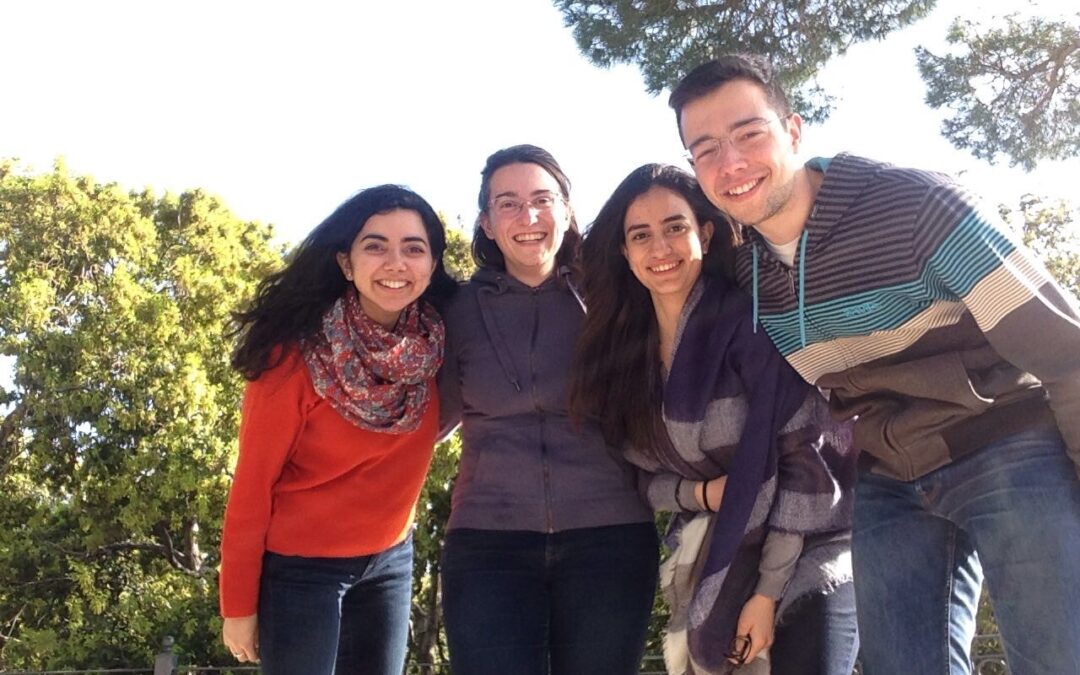
Oct 5, 2017 | Non categorizzato
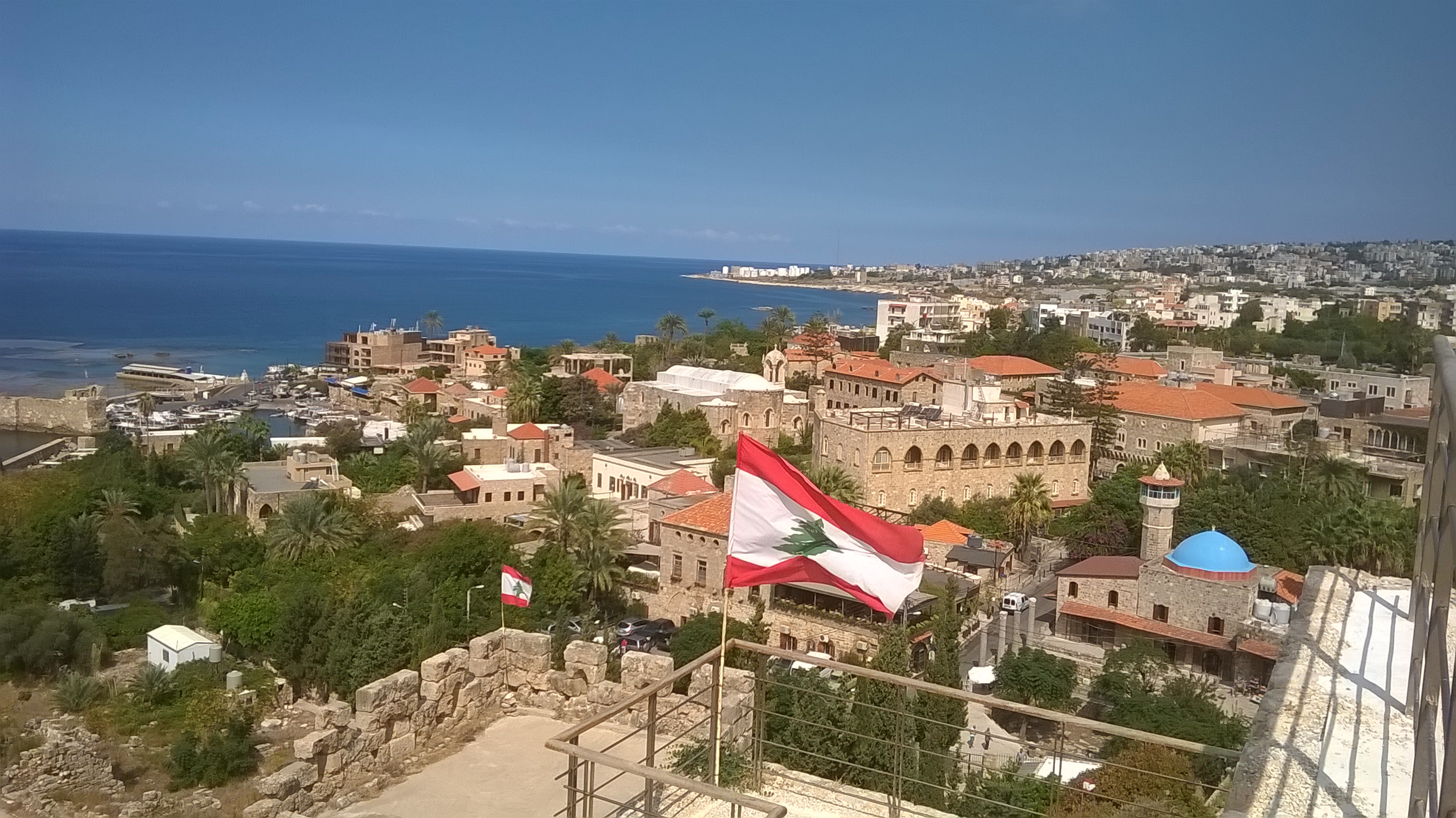 After graduating in languages and international relations, I took off for Lebanon to continue my studies of the Arab language and, at long last, to immerge myself in Middle East culture that fascinated. It might seem odd to tell the story of an experience beginning from the end, from when I had to leave the Middle East, but that was when I grasped the importance experience. As I prepared to return to Italy, my thoughts went back to when it all began, and I asked myself if my long-awaited stay in the Middle East could already be over. I remembered myself as the girl who was taking her first steps into the choas of Beirut, who felt like everbody was staring at her because she was a foreigner. In a matter of a very little time, however, people began to stop me on the road and ask me in Arabic for directions, mistaking me for Lebanese. Perhaps it was more my prejudiced view towards them, rather than the opposite! In the beginning, the indifference towards the new environment was involuntary, which prevented me from getting out of myself and loving the people walking by. I hadn’t yet understood that the environment around me was just different, not dangerous.
After graduating in languages and international relations, I took off for Lebanon to continue my studies of the Arab language and, at long last, to immerge myself in Middle East culture that fascinated. It might seem odd to tell the story of an experience beginning from the end, from when I had to leave the Middle East, but that was when I grasped the importance experience. As I prepared to return to Italy, my thoughts went back to when it all began, and I asked myself if my long-awaited stay in the Middle East could already be over. I remembered myself as the girl who was taking her first steps into the choas of Beirut, who felt like everbody was staring at her because she was a foreigner. In a matter of a very little time, however, people began to stop me on the road and ask me in Arabic for directions, mistaking me for Lebanese. Perhaps it was more my prejudiced view towards them, rather than the opposite! In the beginning, the indifference towards the new environment was involuntary, which prevented me from getting out of myself and loving the people walking by. I hadn’t yet understood that the environment around me was just different, not dangerous. 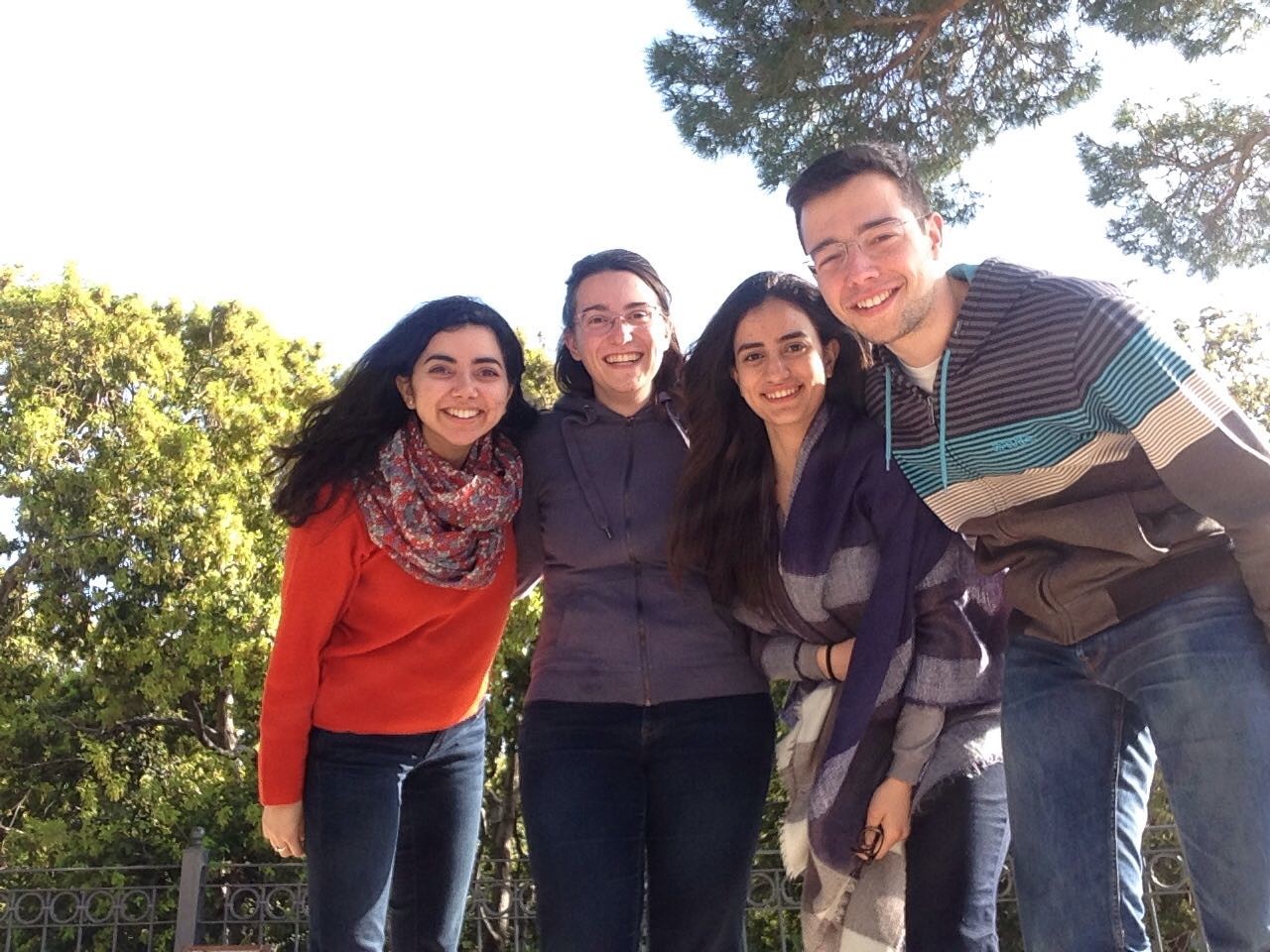 I realized how much my vision of Lebanon changed over the course of the year. At first I had mostly perceived the differences with respect to Italy. Then, I quickly fell in love with the land, its richness, the variety of religions, cultures, scenic landscapes and history. I had fallen in love with the people who, in spite of their recent painful past, was able to live again, Christians and Muslims shoulder to shoulder. I had fallen in love with a people that was spontaneous, welcoming – and had a fantastic cuisine! Then I had to recuperate a bit of objectivity in looking at a land that like every other had its own contradictions, such as the great poverty and ostentatious wealth that live not far apart. In my mind I went back over the year in Lebanon during which many aspects of life that once seemed dangerous or odd, unfortunfortunate or disappointing compared to Italy, have become part of my daily life (not at all infelicitious – on the contrary!). When I said good-bye to the Sryian refugee children whom I had helped with homework, they only said “ciao,” showing how we’re all important and none of us is indispensible. Realizing that I’d probably never know what had come of them was rather painful. I had to say goodbye to the friends that I had made, to whom I owe so much and hoping with all my heart that I would see them again, but never really knowing if I would. It was quite an effort to embrace the thought that distances was coming between us once again, not only geographically, but mostly bureaucratically. To leave each other, knowing that borders, visas and distance were about to fall on us was, at times, exasperating and even unbearable. But now I know that this is the price you pay for being a global citizen as we Gen say. Now, after having left pieces of my heart around the world, a united world is no longer merely something that would be nice if it were really true: a world without borders has become a need.
I realized how much my vision of Lebanon changed over the course of the year. At first I had mostly perceived the differences with respect to Italy. Then, I quickly fell in love with the land, its richness, the variety of religions, cultures, scenic landscapes and history. I had fallen in love with the people who, in spite of their recent painful past, was able to live again, Christians and Muslims shoulder to shoulder. I had fallen in love with a people that was spontaneous, welcoming – and had a fantastic cuisine! Then I had to recuperate a bit of objectivity in looking at a land that like every other had its own contradictions, such as the great poverty and ostentatious wealth that live not far apart. In my mind I went back over the year in Lebanon during which many aspects of life that once seemed dangerous or odd, unfortunfortunate or disappointing compared to Italy, have become part of my daily life (not at all infelicitious – on the contrary!). When I said good-bye to the Sryian refugee children whom I had helped with homework, they only said “ciao,” showing how we’re all important and none of us is indispensible. Realizing that I’d probably never know what had come of them was rather painful. I had to say goodbye to the friends that I had made, to whom I owe so much and hoping with all my heart that I would see them again, but never really knowing if I would. It was quite an effort to embrace the thought that distances was coming between us once again, not only geographically, but mostly bureaucratically. To leave each other, knowing that borders, visas and distance were about to fall on us was, at times, exasperating and even unbearable. But now I know that this is the price you pay for being a global citizen as we Gen say. Now, after having left pieces of my heart around the world, a united world is no longer merely something that would be nice if it were really true: a world without borders has become a need.
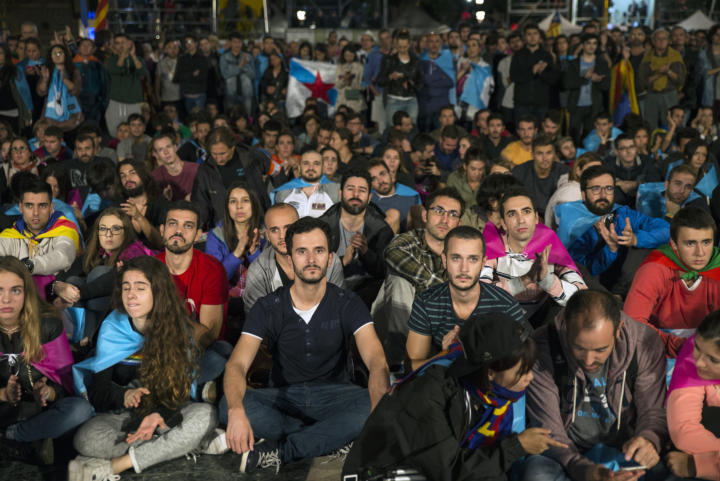
Oct 4, 2017 | Non categorizzato
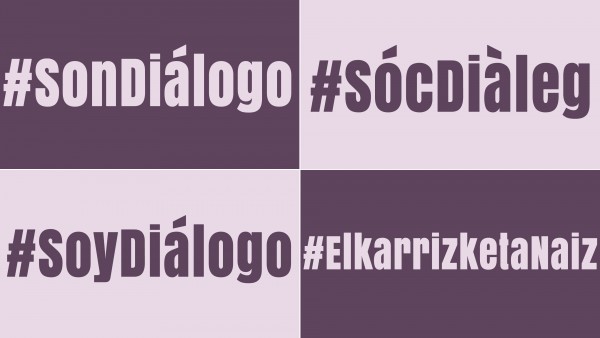 SoyDiálogo (I’m dialogue) is meant as a personal challenge in the face of the situation that has come about in Spain, the proposal to reject every form of violence and to live for the concrete promotion of a culture of dialogue. The challenge is both need and courageous. There have been many efforts in this direction. On the 26th of September, the Focoalre Movement in Spain had proposed a document and gathering of signatures with the intent of promoting opportunities for dialogue, listening and respect. It is an appeal to find peaceful solutions for harmonious coexistence in diversity, recognizing the human dignity of all people and institutions that represent them. The proposal, marked with the hastag #SoyDiálogo, which is in full agreement with the recently relaunched invitation of the bishops to “advance the path of dialogue and mutual understanding,” seems even more timely now, following the results of the referendum vote that opens great unknowns on the future of Catalonia, from Spain and from Europe. The promoters of the effort write: “Dialogue is a powerful tool that makes interest in others possible, entering into their reality, to live it, embrace and, inasmuch as possible, comprehend it. Among us, Focolare members all over Spain, there are people with different cultural and political identities. We’re directly involved in building bridges, convinced that there is an element of truth in the vision and choices of the other. But we condsider diversity to be a positive challenge and enrichment.” “Comments from signers on Twitter: “A signature never decides, but it’s better than crossing your arms and watching the river go by.” “We are as we discuss, enriched by the gift of diversity.” “I believe in dialogue, which presupposes respect, transparency and acceptance that there is a bit of truth in the other tha I can totally embrace.” “It’s not a bad thing to think differently. It’s the way you evolve. It’s the opposite of uniformity and immobility.”
SoyDiálogo (I’m dialogue) is meant as a personal challenge in the face of the situation that has come about in Spain, the proposal to reject every form of violence and to live for the concrete promotion of a culture of dialogue. The challenge is both need and courageous. There have been many efforts in this direction. On the 26th of September, the Focoalre Movement in Spain had proposed a document and gathering of signatures with the intent of promoting opportunities for dialogue, listening and respect. It is an appeal to find peaceful solutions for harmonious coexistence in diversity, recognizing the human dignity of all people and institutions that represent them. The proposal, marked with the hastag #SoyDiálogo, which is in full agreement with the recently relaunched invitation of the bishops to “advance the path of dialogue and mutual understanding,” seems even more timely now, following the results of the referendum vote that opens great unknowns on the future of Catalonia, from Spain and from Europe. The promoters of the effort write: “Dialogue is a powerful tool that makes interest in others possible, entering into their reality, to live it, embrace and, inasmuch as possible, comprehend it. Among us, Focolare members all over Spain, there are people with different cultural and political identities. We’re directly involved in building bridges, convinced that there is an element of truth in the vision and choices of the other. But we condsider diversity to be a positive challenge and enrichment.” “Comments from signers on Twitter: “A signature never decides, but it’s better than crossing your arms and watching the river go by.” “We are as we discuss, enriched by the gift of diversity.” “I believe in dialogue, which presupposes respect, transparency and acceptance that there is a bit of truth in the other tha I can totally embrace.” “It’s not a bad thing to think differently. It’s the way you evolve. It’s the opposite of uniformity and immobility.”  Some considerations from those who believe in dialogue. Girona: “These are strange times, a mix of sadness, helplessness and worry. At the same time it’s clear to me what I should do. In any event I wonder what I can do, with my limited possibilities. I make an effort not to judge. Opportunities for listening with an open mind are never lacking.” A young woman from Seville writes: “With a Catalan friend we try to keep the dialogue open. I take an interest in her family. When you get to know the other person’s background, you can change a bit of your idea and love that person more, even though we have differing ideas.” From Barcelona: “These events offer many possibilities for keeping the dialogue going with those who think like me, and also with those who don’t think like me.” “Up until now I limited myself to praying and cancelling the chain of photos, jokes or doubtful news that circulate online and don’t favour positive feelings,” writes a woman from Toledo. “Then I wondered to myself: what more can I do? I tried to make it known to the people I know in Catalonia that they can count on me to build dialogue. Perhaps that was obvious, but I felt like I had to come out and say it.” Girona writes: “In my opinion when we’re not able to see the bit of truth that is there in the other, we already demonize them. This gives us free rein to write or share whatever incendiary comment that enters our mind. We’re immersed in all this, at times without realizing it, and that’s what’s worse. We forget that our challenge is more heroic and difficult than just making propaganda out of our ideas and disparaging those of others. The real challenge is to build bridges.” From Seville: “I have a lot of friends in Catalonia, brothers and sisters who have decided with me to work at building a new humanity. We share each other’s worries and pain. For this reason, when we write to each other, they’ve felt free to tell me: we hope that the next time, when we see each other again we’ll be independent. And they in turn have listened to me when I answered: I wish for us all that the next time we see one another reason and good thinking will have won.”
Some considerations from those who believe in dialogue. Girona: “These are strange times, a mix of sadness, helplessness and worry. At the same time it’s clear to me what I should do. In any event I wonder what I can do, with my limited possibilities. I make an effort not to judge. Opportunities for listening with an open mind are never lacking.” A young woman from Seville writes: “With a Catalan friend we try to keep the dialogue open. I take an interest in her family. When you get to know the other person’s background, you can change a bit of your idea and love that person more, even though we have differing ideas.” From Barcelona: “These events offer many possibilities for keeping the dialogue going with those who think like me, and also with those who don’t think like me.” “Up until now I limited myself to praying and cancelling the chain of photos, jokes or doubtful news that circulate online and don’t favour positive feelings,” writes a woman from Toledo. “Then I wondered to myself: what more can I do? I tried to make it known to the people I know in Catalonia that they can count on me to build dialogue. Perhaps that was obvious, but I felt like I had to come out and say it.” Girona writes: “In my opinion when we’re not able to see the bit of truth that is there in the other, we already demonize them. This gives us free rein to write or share whatever incendiary comment that enters our mind. We’re immersed in all this, at times without realizing it, and that’s what’s worse. We forget that our challenge is more heroic and difficult than just making propaganda out of our ideas and disparaging those of others. The real challenge is to build bridges.” From Seville: “I have a lot of friends in Catalonia, brothers and sisters who have decided with me to work at building a new humanity. We share each other’s worries and pain. For this reason, when we write to each other, they’ve felt free to tell me: we hope that the next time, when we see each other again we’ll be independent. And they in turn have listened to me when I answered: I wish for us all that the next time we see one another reason and good thinking will have won.”
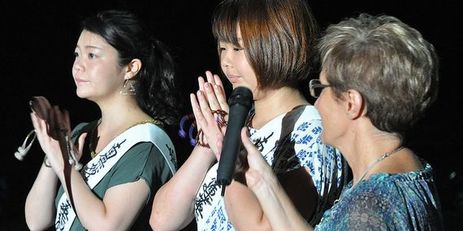
Oct 4, 2017 | Non categorizzato
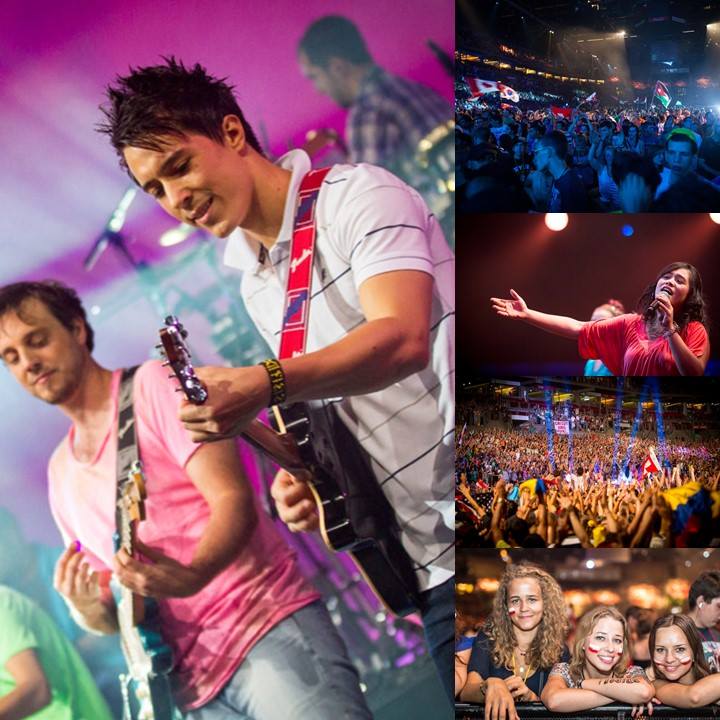 World Trade Centre Metro in Manila, Philippines, 6-8 July 2018. The meeting is for thousands of young people from all over the world, motivated by an idea, almost a fixation, which shapes their lives and all their social projects: building a just and united world. The Genfest 2018, Beyond all borders, is an invitation to let the barriers, borders, and limits which stand in the way of this goal, crumble. The Genfest began in 1973 with an idea from Chiara Lubich, founder of the Focolare Movement, and in more than 40 years it has gathered together tens of thousands of young people. The Genfest of 2018 will be the eleventh edition, and the first to be outside of Europe. In its long history, each Genfest has been an important step and has seen many projects come to life: among these is the idea for the World Youth Days, begun in 1985; in the same year, the birth of the Youth for a United World (YFUW); the World Unity Week, active since 1996, to showcase the initiatives which promote unity, at all levels, in the world; and finally, since 2012, the United World Project, a permanent observatory of all good practices on a planetary level. This Genfest will just precede the Synod on young people, which will be held in October 2018. Meeting with the organizers, present at this time at Castelgandolfo (Rome) for the meeting of the delegates of the Focolare Movement from all over the world, we have gathered some “first-hand” news. Ding Dalisay represents the Philippines at this assembly: “To our great joy, we have received the support of the president of the Catholic Bishops’ Conference of the Philippines, who encourages us to work to bring the Genfest to as many young people as possible. For some time now the youth of the Philippines have been touring in caravans to present the Genfest in parishes, universities, and other places. We have great hope that many young people will come.” Carlo Gentile, delegate of the Philippines along with Ding: “It will be the first Genfest in Asia, so it will be a very important multicultural event. Chiara Lubich called the Genfest a “cascade of God.” We can expect a wonderful event that has been prepared for all the youth from Asia, but also the whole world; a profound experience, immersed in the Asian culture.
World Trade Centre Metro in Manila, Philippines, 6-8 July 2018. The meeting is for thousands of young people from all over the world, motivated by an idea, almost a fixation, which shapes their lives and all their social projects: building a just and united world. The Genfest 2018, Beyond all borders, is an invitation to let the barriers, borders, and limits which stand in the way of this goal, crumble. The Genfest began in 1973 with an idea from Chiara Lubich, founder of the Focolare Movement, and in more than 40 years it has gathered together tens of thousands of young people. The Genfest of 2018 will be the eleventh edition, and the first to be outside of Europe. In its long history, each Genfest has been an important step and has seen many projects come to life: among these is the idea for the World Youth Days, begun in 1985; in the same year, the birth of the Youth for a United World (YFUW); the World Unity Week, active since 1996, to showcase the initiatives which promote unity, at all levels, in the world; and finally, since 2012, the United World Project, a permanent observatory of all good practices on a planetary level. This Genfest will just precede the Synod on young people, which will be held in October 2018. Meeting with the organizers, present at this time at Castelgandolfo (Rome) for the meeting of the delegates of the Focolare Movement from all over the world, we have gathered some “first-hand” news. Ding Dalisay represents the Philippines at this assembly: “To our great joy, we have received the support of the president of the Catholic Bishops’ Conference of the Philippines, who encourages us to work to bring the Genfest to as many young people as possible. For some time now the youth of the Philippines have been touring in caravans to present the Genfest in parishes, universities, and other places. We have great hope that many young people will come.” Carlo Gentile, delegate of the Philippines along with Ding: “It will be the first Genfest in Asia, so it will be a very important multicultural event. Chiara Lubich called the Genfest a “cascade of God.” We can expect a wonderful event that has been prepared for all the youth from Asia, but also the whole world; a profound experience, immersed in the Asian culture.  A worldwide mobilization has already begun. There are many contacts with other Movements, for example with the youth of the Rissho Kosei-kai, a Japanese Buddhist lay association, with six million followers, and with the Youth World Peace Forum, which will celebrate its own annual meeting in Manila during the same time period as the Genfest. In some parts of the world, smaller Genfest activities are being planned with local initiatives. A committee of 30 young people, representatives of different geographical areas of the world, with the coordination of the international secretariat of the Youth for a United World, is already at work. Kiara Cariaso and Diego Lopez explain: “We are working to bring young people from all over the world to the Genfest in Manila. There are already many activities, not only in the Philippines, because it will be a planetary event which we build together.” “In fact,” continues Diego, “we are gathering ideas that come from young people from all countries, we work together, and we send them to the Philippines.” They explain: “The 2018 Genfest will take place is three phases: the first, preceding the rally, with the possibility for many youth from various parts of the world to get to know the Asian cultures. It will be a unique intercultural, interreligious, and social experience, which will take place in different Asian countries. Following this, the central event in Manila, from 6 to 8 July, in which we want youth from every part of the world to be able to participate, so that each person’s situation will be made present, but at the same time each person will bring back to their own community their experience and the commitment they made in Manila. Finally, a “post Genfest,” especially for the Asian young people, which will allow them to testify to a “United Asia for a United World.” This will be a great experience for 800 young people in the Focolare small town of Tagaytay.” Offical site: y4uw.org/genfest
A worldwide mobilization has already begun. There are many contacts with other Movements, for example with the youth of the Rissho Kosei-kai, a Japanese Buddhist lay association, with six million followers, and with the Youth World Peace Forum, which will celebrate its own annual meeting in Manila during the same time period as the Genfest. In some parts of the world, smaller Genfest activities are being planned with local initiatives. A committee of 30 young people, representatives of different geographical areas of the world, with the coordination of the international secretariat of the Youth for a United World, is already at work. Kiara Cariaso and Diego Lopez explain: “We are working to bring young people from all over the world to the Genfest in Manila. There are already many activities, not only in the Philippines, because it will be a planetary event which we build together.” “In fact,” continues Diego, “we are gathering ideas that come from young people from all countries, we work together, and we send them to the Philippines.” They explain: “The 2018 Genfest will take place is three phases: the first, preceding the rally, with the possibility for many youth from various parts of the world to get to know the Asian cultures. It will be a unique intercultural, interreligious, and social experience, which will take place in different Asian countries. Following this, the central event in Manila, from 6 to 8 July, in which we want youth from every part of the world to be able to participate, so that each person’s situation will be made present, but at the same time each person will bring back to their own community their experience and the commitment they made in Manila. Finally, a “post Genfest,” especially for the Asian young people, which will allow them to testify to a “United Asia for a United World.” This will be a great experience for 800 young people in the Focolare small town of Tagaytay.” Offical site: y4uw.org/genfest
Oct 3, 2017 | Non categorizzato
The international Gen Verde Music Group set up at Statdthagen, Germany, on September 9th to celebrate the 500th anniversary of the Lutheran Reform. Gen Verde writes: “A thousand people, in spite of the pouring rain that continued until just before the concert began.” “The crowd filled the entire main square of the pretty city of Stadthagen, in Lower Saxony. Our concert, On the Other Side, brought a note of fraternity and internationality. Already in the days leading up to the concert, we shared some beautiful moments with the Lutheran Bishop, Dr Manzke, who had invited us and his collaborators. On the day of the concert a group of young people and their pastors helped us to set up the stage, drenched by the rain. but happy.” “We are left in our heart with those people in the square under a sea of umbrellas, cold and listening and rejoicing, singing and finally dancing along with us! Thank you, Stadthagen, together we experienced moments as a true family.”





 SoyDiálogo (I’m dialogue) is meant as a personal challenge in the face of the situation that has come about in Spain, the proposal to reject every form of violence and to live for the concrete promotion of a culture of dialogue. The challenge is both need and courageous. There have been many efforts in this direction. On the 26th of September, the
SoyDiálogo (I’m dialogue) is meant as a personal challenge in the face of the situation that has come about in Spain, the proposal to reject every form of violence and to live for the concrete promotion of a culture of dialogue. The challenge is both need and courageous. There have been many efforts in this direction. On the 26th of September, the
